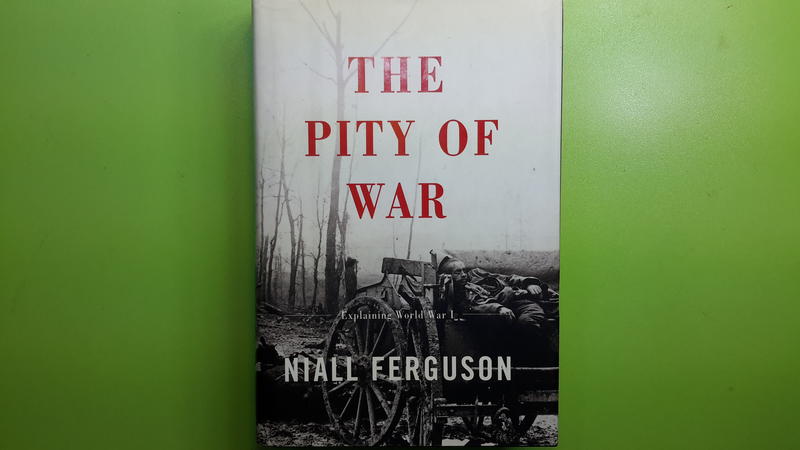

Far worse than a tragedy, it was the greatest error of modern history. In this provocative book Niall Ferguson asks: was the sacrifice worth it? Was it all really an inevitable cataclysm and were the Germans a genuine threat? Was the war, as is often asserted, greeted with popular enthusiasm? Why did men keep on fighting when conditions were so wretched? Was there in fact a death wish abroad, driving soldiers to their own destruction? The war, he argues, was a disaster - but not for the reasons we think. Ve ry Good +/Very Good+.The First World War killed around eight million men and bled Europe dry. Dust jacket has one tiny edge tear and minor browni ng o n spin e. Ferguson vividly brings back to li fe on e of the semi nal c atast roph es of the century, not through a dry citation of chronological chapter and verse, but through a series of brilliant chapters that answer the key questions: Why did the war start? Why did it continue? And why did it st op? How d id th e Germ ans ma nage to kill more soldiers than they lost but still end up defeated in November 1918? Above all, why did men fight?" Minor rubbing, tiny bump at top of front hinge. It was Britain's declaration of war that needl essl y t urne d a cont inen tal conflict into a world war, and it was Britain's economic mismanagement and military inferiority that necessitated American involvement, forever altering the global balance of power. He argues that the fatal conflict between Britain and Germany was far from inevitable. In (this book, the author) explodes the myths of 1914-18. Now, as the century draws to a close, the time is righ t f or a r adi cal re ass essment of the 'Great War'. Rather, it spawned seven decades of Communist rule in Russia, the rise of Adolf Hitler's Third Reich, and the horror of the Holocaust.

More than nine million men lost their li ve s, y et n on e of its stated objectives were met. Internat i o n a l l y, more than any other event, the First World War made the twentieth century what it was: It toppled the four great empires of the Old World and left a fifth - the British - mortgaged to the hilt. Even American literature was transformed by the impact of the war on writers like Hemingway and Fitzgerald. This was the fir st, bloody step on the road to globalism which would characterize our foreign policy for the rest of the twentieth century. "More than four million Americans were mobilized in 1917-18, of whom more than 100,000 were killed - double the number who died in Vietnam. 563 pp, large 8vo (9 1/2" H), hard cover in dust jacket.


 0 kommentar(er)
0 kommentar(er)
